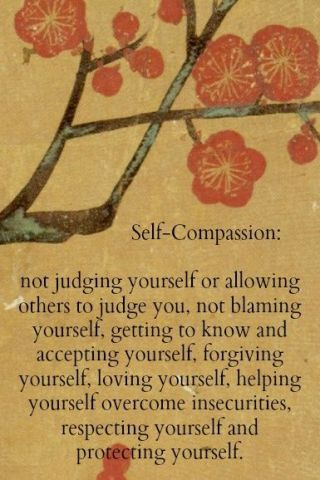Spirituality
Stop the Self-Diagnosis
Befriending yourself rather than belittling yourself.
Posted December 13, 2013
“I’m lazy.”
“I’m selfish.”
“I should have done things differently.”
“I’m not very smart.”
“I’m making a big mistake.”
These are common statements I hear, all related to a position of self-doubt and deficit. We can come by them honestly in that they protect us from feared judgment from others that might be worse then our own. They also reduce what is usually much more complex into something bite sized, and they provide a feeling of control—after all, if I caused it, I can fix it. Unfortunately, they also use a wide brush to paint a rather unflattering picture. These statements (and beliefs) blanket over what is usually just the human condition and make it something dark and pathological. They miss the beauty, the good intentions, the exhaustion, the growth, and the common thread that runs through us all.
Most of the time, we can unpack the above statements and give ourselves the benefit of the doubt, we can realize that we are not perfect and neither is anyone else. Even in the face of discomfort and wishing that things were different, we can accept all of who we are. When you are caught in the throws of self-diagnosis, perhaps you can remember the following:
- I assure you, most people have binge watched a TV-show when they could have been at the gym.
- Most people are thinking about themselves most of the time.
- We all learn through trial and error and through putting ourselves out there. There is no safe way to map out our lives in advance so that no one gets hurt.
- Most people wish they knew more or they have someone they compare themselves to who appears smarter in some way.
- Fear and worry plague many of us. It can manifest in what feels like “facts” about our behavior but these are really just judgments dressed up like truisms.
So, there is nothing wrong with wanting to be more active, to learn something new, to be more altruistic, to feel less struggle and fear. However, diagnosing ourselves as deficient when we don’t hit the mark isn’t helping matters. And it’s just not true (and it’s just not kind). I encourage you to take a step back from the self-blame, look around and see what else might be going on. See if you can soften towards yourself and how this might make for a richer understanding of your experience (and the experience of others). See how you might begin to love and accept yourself even if you aren’t perfect. Talk to yourself with love and compassion rather than ridicule and disgust. Sometimes, we are the only friend we have, so I suggest befriending yourself rather than belittling yourself.

How else do you practice self-compassion? I'd love to hear your thoughts in the comments section.
Ingrid Mathieu, Ph.D. is a clinical psychologist and author of Recovering Spirituality: Achieving Emotional Sobriety in Your Spiritual Practice.
Follow her on Facebook for daily inspiration on achieving emotional sobriety. Watch her short videos or visit her website at www.IngridMathieu.com
Copyright by Ingrid Mathieu, Ph.D., 2013. All rights reserved. Any excerpts reproduced from this article should include links to the original on Psychology Today.


